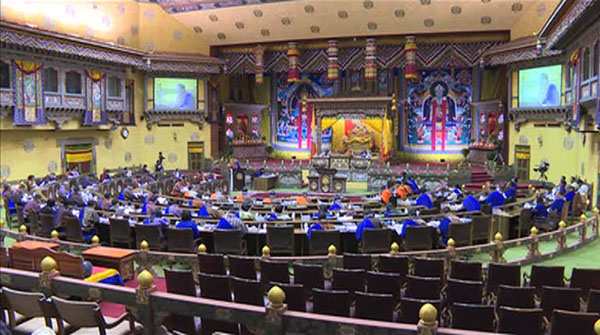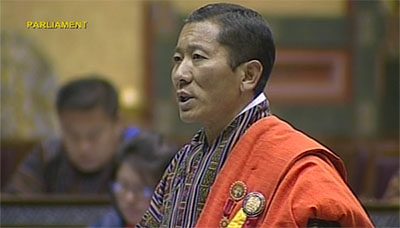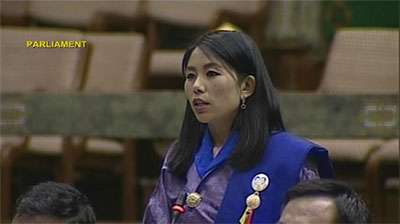 Discussing on the Annual Audit Report 2018, the Public Accounts Committee of the parliament found out that the most common and recurring lapses resulting in irregularities in most of the public agencies are excess payment.
Discussing on the Annual Audit Report 2018, the Public Accounts Committee of the parliament found out that the most common and recurring lapses resulting in irregularities in most of the public agencies are excess payment.
Such lapses amounted to over Nu 100 M in both budgetary and non-budgetary bodies in 2018. This was presented by the Public Accounts Committee in the joint sitting while deliberating on the financial audit reports today.
It ranges from improper verification of bills to the wrong measurement in quantity of work, payment for items of work not executed, and less deduction among others.
As of June 2019, the total unresolved irregularities were reported to be over Nu 2bn. Around 56 per cent was settled by November while leaving a balance of over Nu 1bn.
Other than excess payment, the committee also found out that the common irregularities across the agencies were due to underutilisation of infrastructures such as water treatment pump, market shed, irrigation and river protection among others. Sub-standard and defective works, payment of expenditure without completion of work, Non-levy of liquidated damages, shortages in revenue deposit and allotment of government land on the lease were some of the other findings.
 “If we look at it properly, the irregularities is mostly due to excess payment, underutilisation of the budget and payment of expenditure without completion of work. I think the main problem in our country is planning. For example, the planning of five-year plan whereby if one plan takes longer than a year, the money is already deducted in that year. In some cases, the works are already done. Also, June financial closing where officials hurry to get things done. The work should be done seamlessly,” said Dr Lotay Tshering, Prime Minister.
“If we look at it properly, the irregularities is mostly due to excess payment, underutilisation of the budget and payment of expenditure without completion of work. I think the main problem in our country is planning. For example, the planning of five-year plan whereby if one plan takes longer than a year, the money is already deducted in that year. In some cases, the works are already done. Also, June financial closing where officials hurry to get things done. The work should be done seamlessly,” said Dr Lotay Tshering, Prime Minister.
 “Gasa dzongkhag, for example, falls under protected area. Even if we have a budget, in order to get any sort of clearance, it takes three, four months. The time is mostly spend on this that we rush because we need to give back the budget to the government and the quality of work done is not at par. The local government then give the work to the private agency to do the work faster and that is where I think corruption occurs,” added Yeshey Dem, the Member of Parliament of Khamaed Lunana.
“Gasa dzongkhag, for example, falls under protected area. Even if we have a budget, in order to get any sort of clearance, it takes three, four months. The time is mostly spend on this that we rush because we need to give back the budget to the government and the quality of work done is not at par. The local government then give the work to the private agency to do the work faster and that is where I think corruption occurs,” added Yeshey Dem, the Member of Parliament of Khamaed Lunana.
Examining the past audit reports and the common trend of irregularities, the committee recommended two interventions. The committee recommended the Central Coordination Agency under the Ministry of Finance to support capacity building based on review findings to strengthen overall efficiently, effectiveness and professional management of internal auditors. Collaboration between the Central Coordinating Agency and the Royal Audit Authority in sharing resources to compliment and supplement each other’s work and reduce redundancy was also recommended.
The committee also recommended the Royal Audit Authority to carry out awareness on the newly developed rules and regulations for fixing accountability of Audit findings, 2019. This regulation instead of fixing just the mid-level officials will also fix the head of the agency. Both the recommendations were supported by the members of the parliament.
The report of the Royal Audit Authority was tabled in the parliament during its second session in June last year. Subsequently, the committee received the review report of Annual Audit Report 2018 in December last year to be reviewed.
Samten Dolkar








